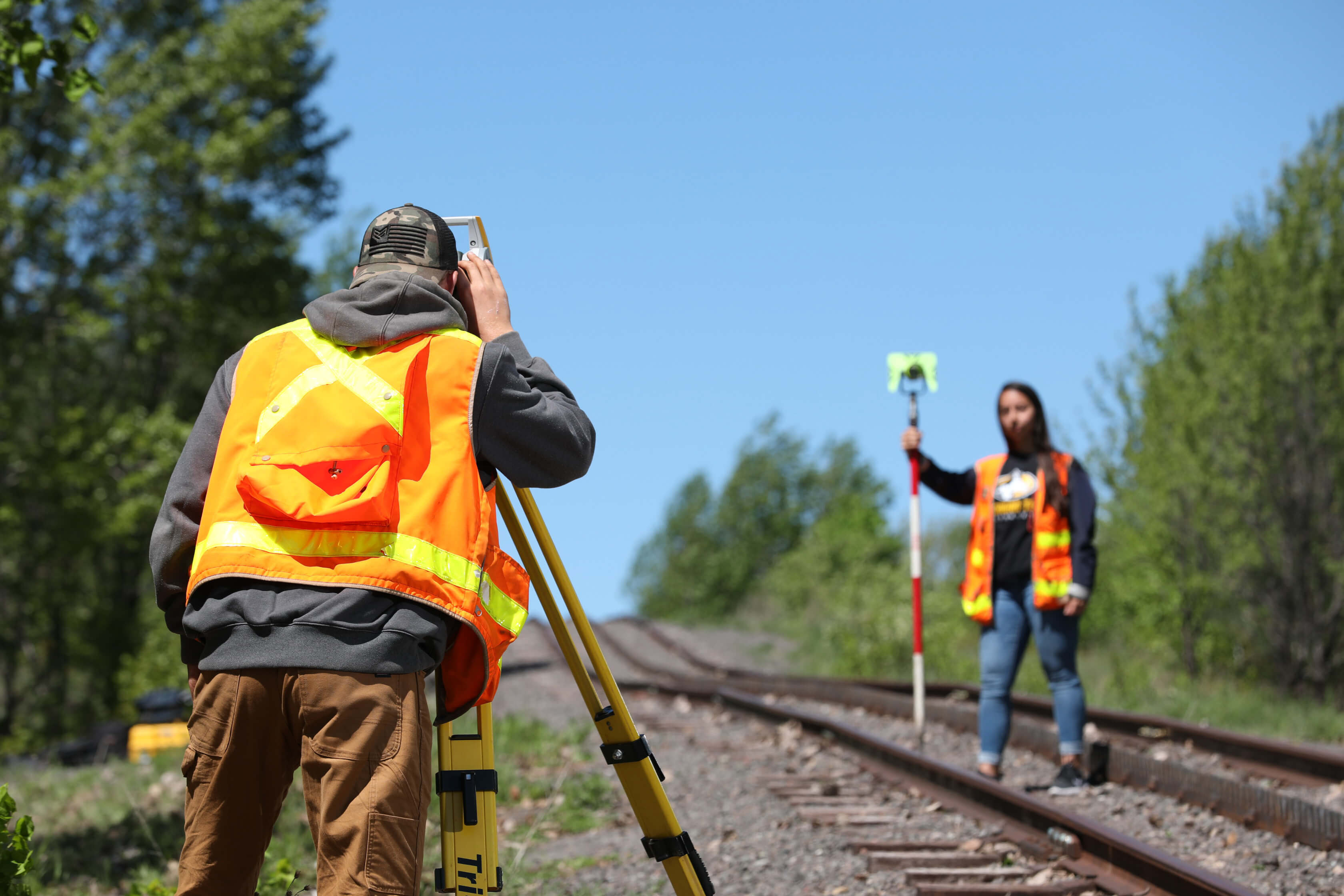Hoss Yaqoub doesn’t rest on his engineering laurels. With a 25-year career in international enterprises across four different countries, he’s done it all in the field. The Calgary-based engineering facilitator isn’t stopping anytime soon though. He has just become the first online MS in Civil Engineering (MSCE) graduate from the Department of Civil, Environmental, and Geospatial Engineering (CEGE) at Michigan Technological University in 2021.
Even with over two decades of professional expertise under his belt, Yaqoub is keen on exploring emerging concepts and technologies in his field, hence the decision to pursue a master’s degree with Michigan Tech. “It gave me the opportunity to gain and improve some skills, and increased my consciousness about engineering in general.” He’s now set his sights on the PhD program for a more in-depth study of his favourite subject of structural engineering. Michigan Tech’s robust coursework in the structural engineering area and the faculty’s expertise in a wide range of structural areas made a Michigan Tech degree quite attractive.
The world is changing fast, as is the engineering profession. For Michigan Tech CEGE graduates like Yaqoub, this is a future they’re prepared for.
A look at the list of graduates to emerge from the department — and the feats they’ve accomplished since — is proof enough. Engineers at Michigan Tech are making headway in the industry through a combination of curiosity, ingenuity and creativity to design a better world — one structure at a time.
Breaking structural barriers on all fronts
A licensed Professional Engineer, Jessica Daignault is breaking the mould as a woman in STEM. She is among a growing cohort of women who are making it big in a male-dominated field: a study reports that women make up only 14% of civil engineers in the US.
Daignault has always seen past the numbers. Personal and professional growth come first — she entrusts this and her entire education to Michigan Tech. Daignault is a Husky through and through, earning all of her CEGE degrees at Michigan Tech.
She completed her BS in Environmental Engineering in 2012, then returned four years later to gain her MS in Civil Engineering. She recently completed her PhD in Civil Engineering at Michigan Tech in December 2021, with a research focus on multi-dimensional modeling for environmental impact assessment at intersections of the Food-Energy-Water (FEW) Nexus.
“Michigan Tech has played a fundamental role in my life story from high school through graduate school. The connections made and opportunities presented have paved the way to a vibrant career, and I will be forever thankful for that!” she says of her study experience.
Thanks to her training at Michigan Tech, Daignault has worked as a design engineer for multiple firms, and is paving her way at the global stage as an active participant of the United Nations Framework Convention on Climate Change (UNFCCC) Conference of the Parties (COP) since 2019. Daignault is now an Assistant Professor of Civil Engineering at Montana Technological University.

Students at Michigan Tech learn the value of sustainable engineering in devising long-term solutions. Source: Michigan Tech
Socially-conscious engineering
As the climate crisis reaches a tipping point, engineers’ role in building a better and greener world is more crucial than ever. Graduates of Daignault’s caliber are precisely what Michigan Tech strives for in its commitment to facilitate sustainable development and societal impact through infrastructure.
Sustainable engineering at Michigan Tech stretches far and wide beyond the classroom. Just ask Brian Rivers, a former Peace Corps volunteer who has changed the lives of others abroad. His service in the Corps’ Water, Sanitation, and Hygiene (WASH) program led him to collaborative grassroots work with Peruvian locals to improve water system maintenance and community health.
Now a CEGE student focusing on Water Resources Engineering, Rivers hopes to build on his humanitarian work further by applying concepts from his master’s degree. “The department nurtures an inclusive learning environment where diverse perspectives, experiences, and discourse are grounded in human dignity, justice, and autonomy,” he says. “Michigan Tech students are afforded ample opportunity to mould their degrees towards the benefit of those beyond our borders.”
Future-ready engineers at Michigan Tech
The core of a Michigan Tech engineering education is its hands-on approach, as seen in its various research and entrepreneurial opportunities. CEGE students learn how to meet industry needs through capstone designs that serve as a launchpad for their careers. This allows them to tackle complex solutions in engineering design well before they graduate.
“My time and experiences at Michigan Tech catalyzed many practical and dynamic skill sets that allow me to remain agile in an extremely unpredictable work environment — quite literally monitoring how much the world around us is changing!” reflects Hayden Henderson, who completed both his undergraduate and master’s studies at the university.
In a fast-paced world where innovation shifts rapidly, today’s engineers require a high level of adaptability to meet industry demands without sacrificing sustainability. The range of CEGE programs at Michigan Tech prepare engineers at all levels to create impactful solutions in an ever-changing environment, no matter where they are.
To begin your engineering journey at Michigan Tech, click here to apply now for free.
Follow Michigan Tech on Facebook, Twitter, LinkedIn, Instagram, YouTube, Pinterest and Snapchat













